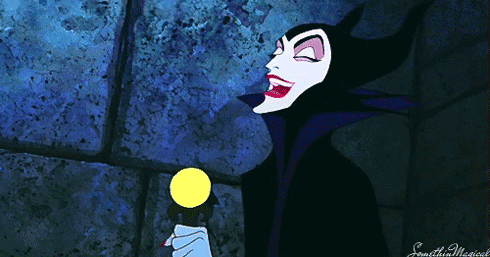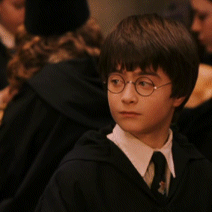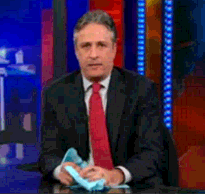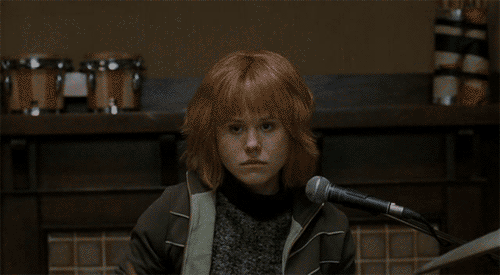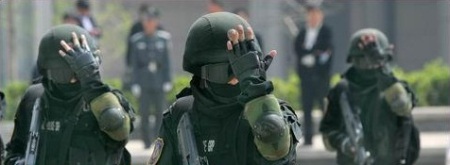Audience, I give you my review of Clockwork Prince.
 Clockwork Prince by Cassandra Clare
Clockwork Prince by Cassandra ClareMy rating: 1 of 5 stars
So, here we are again. Me and another one of these books written by a certain somebody that I will not name because I'm trying to behave. I need to learn to do that you know, but it's not going to stop me from writing a critical review.
In fact, I'm going to do something different this time around. I've decided that I'm going to just type. There are a few things I want to go over. I'm going to discuss Will's curse, and Will and Jem's relationship in relation to the curse and the whole Tessa thing. I'll throw in a couple bad similes for entertainment purposes. Then I'll just throw in whatever else I have scribbled in my notes and see how it goes. I'm going to cross my fingers and hope I'm still sane by the end.
WARNING: The following has spoilers, griping, whining, and no time for trolls.
Last Book Recap: Tessa is special. Creepy old dude wants to marry her for... reasons? Two boys fall in love with her. Her brother ends up being a greedy snake. Tessa scares away creepy old dude with fake suicide. The end.
Right off the bat, a few thoughts.
You don't ever see Mortmain in this, ever. There is a lot about him, but you never see him. A couple of his lackeys get busted/killed, but that's about it. Oh, and the best part, the title of this book is actually a reference to Mortmain. Yup. Check page 156 of the hardcover for proof.
And Jessamine's characterization. I can't even go there. I will start breaking things.
Okay, I've decided to start out with Will's curse, because there is no excuse anyone could use to justify how much of jackass he really is. How do I put this? When a character spends most of the last two books being like this:
Then they have no excuse to say, "I was totally faking. I was just afraid to love you and get you all killed because I thought a demon put a curse on me. I'm sorry. Let's all hug and dance and smile. Maybe have some tea together. The curse is fake. Let us celebrate."
Do you know why it doesn't excuse Will's behavior? Because a) he never told anyone that he thought he was cursed. Even when he found out, he didn't tell anyone but Tessa and Magnus. And b) he said all that mean stuff to people - like telling Tessa she should sleep with him because she might be barren - even though just about everyone in the house obviously cared for him in some way. So his idea where he would just be mean and broody to everyone to push them away didn't work, at all. Ever. Charlotte and Henry are like his big brother and sister. It's obvious with how much of his crap they put up with that they love him unconditionally. It's nice that Will recognizes that allowing himself to be best bros with Jem is really a dick move because he's dying, but Jem comes across as the kind of person who would have tried to be friends with Will regardless.
And let me tell you something about myself. I have a thing for guys with dark hair and blue eyes, yet I was not even close to being like, "He's dreamy." You want to know why? I asked my husband - who has dark hair and blue eyes - if he was cursed so that everyone he ever loved died, what he would do. His response: "Live every moment with them like it was the last one I was ever going to have." Now I get Will was 12 when he decided to do this, but the writer could have made him a relatively wise 12 year old and given him this perspective on life. He could have run off to want to be a Shadow-hunter because of the demon killing his sister. That's reasonable enough. The curse just makes the story feel like it's trying to make excuses for Will, like everyone else.
Now that I've told you what I think about Will's "curse", dear reader, I'm going to go into his relationship with Jem.
"But Tessa's the main character. Why not talk about her?"
Oh, I'll get to her. Especially when it comes to Will and Jem's relationship, because that is the thing that bothers me the most.
Okay, in Clockwork Angel the writer couldn't stop hitting us over the head with how these two were parabatai. She finally explains what it is, and in a nutshell, they're essentially attached at the soul. They're supposed to be able to "feel" each other all the time, even when separated. You would think that with this type of connection that you would have a stronger sense of what your soul-linked battle buddy is feeling.
In CA, this seemed pretty apparent. Will would be a complete jerk, and Jem would shake his head with a smirk on his face because he has an idea of what Will is really like. Will would buy Jem's treatments and take care of him when he's too sick. It was pretty apparent that they were really, really close. I actually kind of liked their friendship. You could see why they were compatible and why they might be drawn to each other as people. Jem understands that Will needs to protect his soul with his mask of cynicism and hostility; and Will understands that Jem is insecure about his illness and tries to treat him as a normal human being in front of people while caring for him behind closed doors.
This base to springboard off of is pretty solid. As much as I'm not a fan of this particular writer, she has her moments. So, what does happen with these two in Clockwork Prince. Naturally, the writer ruins their friendship.
With two BFFs in love with Tessa, you would think that you would get some really good, but believable drama. Or you would see a beautiful, but heartbreaking gesture of sacrifice as one friend lets the other have the girl of his dreams. (For now, I'm going to ignore Tessa's role in all this. I'll get to that in a moment.) So, what happens? Jem and Will never talk about the girl(s) they like or ever pick up that one of them may be crushing on someone special. Not even Jem, who seems pretty good at handling his friend, notices that Will is especially nasty to Tessa. It's like a formula:
Will + dickish behavior(n) = He likes you, with n representing the level of dickishness.
Yeah, like I buy that they don't shoot the breeze while they clean weapons, or while Will hangs out next to Jem's bedside. All it takes it a, "So, what do you think about, Tessa?" To confirm that men talk about feelings for girls, I asked my husband. Guess what, they do. If they're your best bud, it always comes up. Girls talk about guy problems and guys talk about girl problems. It's a part of close platonic relationships. Will and Jem are supposed to trust each other absolutely, which involves communication. There is no way they would have made it all the way to the engagement scenes without the other knowing.
Do you know how the writer could have handled it instead? Let's take Will and his "curse" fear. He likes Tessa, okay, but finds out Jem has taken a shine to her. Instead of trying to act like he wants to get up Tessa's skirt, he could guide her towards Jem. It's a lot more likeable behavior, especially since Tessa likes Jem, and is a lot better than whatever that engagement drama was. I swear I was almost physically sick there towards the end.
Oh, and the Will-drug den event. I don't think it fit the characterization that the writer had set up for him. He's known Tessa for like 3 weeks and Jem for years. I think Will would be more likely to get drunk on cheap beer and then stumble home. I admit that I liked seeing Jem get upset about it and slug Will, but even I wasn't sure that it fit with the previous narrative logic and I don't even like Will.
Which brings me to Tessa, who only serves to create problems between the two in really strange ways. She is the center of the love triangle, and thus has power to control what happens. This love triangle takes the center of the story, so we aren't even going to go into the plot (which I thought was okay) because there isn't enough of it.
Tessa spends many, many paragraphs comparing the two. It's how she fills the negative space between the plot points, and there is a lot of negative space. (So it quickly grows annoying.)
Take the following passage. It takes place when our intrepid threesome (get your mind out of the gutter) are riding in the carriage to the York train station to return to London.
"[Jem] looked not ill but very tired, though his exhaustion only served to point up the delicacy of his features. His beauty did not blaze like Will's did in fierce colors and repressed fire, but it had its own muted perfection, the loveliness of snow falling against a silver-gray sky." (p. 135)Tessa continues to compare them physically without actually moving into emotional concerns except love or frustration. This scene is perfect example because they're all wet and cold. Jem is ill, but Tessa never shows any concern that their soggy state might affect his well-being. She just sits there and thinks, "He's pretty. They both are." And Jem wants to marry her.
Tessa flip flops between the boys without really being honest with them till toward the end of the novel after Jem proposes to her. She says yes to marrying Jem, but I have the feeling she only does it because he's dying, not because she really wants to. She says she loves both of them, but she thinks of Will and how pretty he is a lot more. While she does tell Will that she can't be involved with him anymore after being engaged to Jem, Will agrees that he and Tessa shouldn't tell Jem they were ever involved so that he can be happy before he dies.
Considering how Jem feels about his illness, I believe he would be more upset knowing about their dalliances later than before. Sick people often don't like being treated like they're sick. (Depending on the personality of course.) Jem seems to like his independence when he has it, so if he found out Will kept the truth from him because he was sick, then logic dictates he would be very upset.
But we all know that isn't going to be how this writer handles it because it requires rationality.
Moving on.
I mentioned in my review of CA that the writer has a certain obsession with appearance, and it shows. Characters are often judged or represented by physical appearance instead of by emotions, actions, and other non-aesthetic qualities. Tessa never thinks of Jem as the super sweet gentleman who likes to share his favorite things with her, or Will as the snarky book lover who cheats at memorization.
Now, to lighten things up a bit, I'm going to do a few "What?" descriptions. I love weird similes.
"Will smiled brilliantly as if complimented, though Tessa, seeing the malice under his smile, thought of light sparking off the cutting edge of a razor." (p. 19) First off, why not just say his smile was creepy. Second, use a dictionary when you write. "Sparking?" These books.
Describing Will's eyes: "His eyes were as blue as lakes..." (p. 67) I've seen green lakes, gray lakes, and lakes so clear and perfect they reflected the surrounding scenery. But the writer would have to observe life to know that.
"She felt pulled to him, like iron filings to a magnet." (p. 114) I don't see how this is romantic, unless you're a couple of scientists.
"... the gray light in the room made his eyes glow an almost unearthly blue, like a cat's." (p. 114) When the way the human eye actually works is considered, along with how light refracts, this is physically impossible. And it just sounds weird.
To describe Magnus' sparks: "They still crackled with blue energy, like heat lightning." (p. 291) Lightning is heat. You know those quick moving particles that make fire, move them faster and you get electricity. Science, people! Know it.
Now that's over with, I do have one final thing I wanted to bring up. Yeah, it's about research again. There is this passage where Tessa describes her first experience wearing "gear." (I hate that freaking word.)
"It was strange... going up a flight of stairs and not having to worry about pulling in your skirts or tripping on the hem. Though her body was completely covered, she felt peculiarly naked in her training gear." (p.50)This story is set in 1878, Tessa would already be used to the feeling of air around her legs since women wore bifurcated drawers under their dresses. Their bustles or crinoline actually kept the skirts off the legs which was more sanitary than when women used to wear layer and layer of petticoats. Women's dress was still 25 pounds of clothing, but according to this article about dress reform, there was gymnasium wear for women at the time. (Although, while the article is recent, it doesn't note the discovery that working women only laced their corsets to 20-24 inches instead of 16. In fact, people use corsets for back problems now because they offer good support if laced properly.) The thing that Tessa would probably notice the most would be the lack of restriction around her torso and the free movement in her arms. Dresses were often cut so that arms couldn't be raised past chest height, unless you were a working woman like Sophie. Lightness would be questionable since the writer keeps changing her mind about what "gear" is made of.
Well, that's my ranty review of scatter brained complaints. Overall, this book mostly annoyed me because of the uneven characterization and focus on the love triangle. Oh, and poor decisions made by the characters. And the literary name dropping. And the weapons. So, basically, same complaints as before.
Next up, Clockwork Princess.
Need clarification on what those complaints are? Visit my other reviews of this particular writer.
The Original Mortal Instruments Trilogy
City of Bones
City of Ashes
City of Glass
The Infernal Devices
Clockwork Angel





